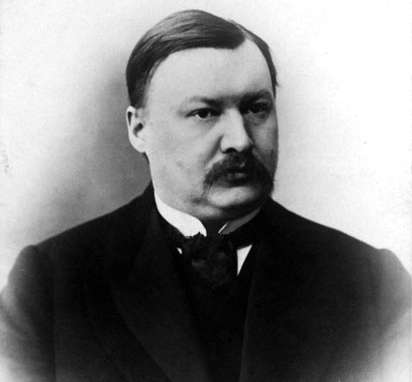- carols
- Boston Symphony
- Resounding Echoes
- Latin
- EUCO
- Georges Prêtre
- J S Bach: cello suites
- Adam Palka
 DISCUSSION: John Dante Prevedini leads a discussion about Composers, individuals or collective?, including contributions from David Arditti, Halida Dinova, Robert McCarney and Jane Stanley.
DISCUSSION: John Dante Prevedini leads a discussion about Composers, individuals or collective?, including contributions from David Arditti, Halida Dinova, Robert McCarney and Jane Stanley.
 DISCUSSION: What is a work? John Dante Prevedini leads a discussion about The performing artist as co-creator, including contributions from Halida Dinova, Yekaterina Lebedeva, Béla Hartmann, David Arditti and Stephen Francis Vasta.
DISCUSSION: What is a work? John Dante Prevedini leads a discussion about The performing artist as co-creator, including contributions from Halida Dinova, Yekaterina Lebedeva, Béla Hartmann, David Arditti and Stephen Francis Vasta.
Thoroughly Attractive
MIKE WHEELER listens to Glazunov orchestral music
Writer and broadcaster Stephen Johnson returned to Nottingham's Royal Concert Hall - Nottingham, UK, 31 May 2024 - with the BBC Philharmonic Orchestra and conductor Martyn Brabbins, for his latest Discovering Music event, in which his presentation is illustrated by live excerpts from the orchestra, followed by a complete performance of the work in question. The subject this time was Alexander Glazunov, and his three-movement Fourth Symphony in particular.
Before Johnson came on stage, we heard what is probably Glazunov's best-known piece, 'Autumn' from his ballet The Seasons. The opening Bacchanale had a real sense of celebration, though taken at not quite such a headlong pace as some I've heard. As became clear later, some extra impetus was being kept in reserve for its final return. Glazunov's bright orchestral colours glittered and sparkled. The waltz, reprised from the Summer section, swayed deliciously, and the last appearance of the Bacchanale was suitably boisterous. When at the end, the stars began shining, according to the ballet's original scenario, the BBCPO captured all the gleam of Glazunov's scoring.

Alexander Glazunov
Stephen Johnson began his presentation of the Symphony with a potted biography of the composer. Anecdotes included references to him keeping a secret stash of vodka handy while teaching, and, unavoidably, his disastrous conducting of Rachmaninov's First Symphony at its premiere. He then drew attention to Glazunov's skills as a tunesmith. To illustrate the point, the cor anglais player (names of individual orchestra members were not available on this occasion) gave us part of the solo theme that opens the Symphony - a typically sinuous piece of Russian orientalism that could have stepped straight out of Rimsky-Korsakov's Scheherazade, and none the worse for that.
Describing Glazunov's prodigious early career, Johnson pinpointed his Symphony No 4 as 'confident, mature'. We heard the cor anglais tune again, at its full extent. He suggested that Glazunov's long themes reflected the Russian landscape's huge open spaces, referring to his own experience of travelling through some of them.
Moving on to the Scherzo second movement, Johnson drew attention to the transparent orchestral sound, and how it could be sometimes be deceptive - he owned up to having previously mis-remembered a non-existent harp part.
The finale's introduction, he suggested, not only acted as a surrogate slow movement, but suggested the 'strange northern twilight' of high summer. As the quick music takes over, the trombones and tubas, he commented 'come into their own'. He went on to say what a 'player-friendly' work this is, which, he discovered when he asked the players, every section of the orchestra enjoyed playing - a point confirmed to me by one of the violinists I got chatting to afterwards.
In the performance itself, the introduction, with the cor anglais theme beguilingly played - as it had been in previous excerpts - with all the expansiveness Johnson had referred to earlier. After a no-fuss transition, the main section had plenty of forward drive, lit up by some characterful woodwind solos, and a way of moving in and out of energetic passages without the result sounding disjointed. Brabbins and the orchestra had a way of bringing out details of scoring without making it all sound cluttered. The Scherzo was taut and springy, with the trio marked by a beguiling clarinet solo, a heady, swirling carnival atmosphere at the climax, and a deft pay-off. The finale moved seamlessly from slow introduction to festive allegro, with the brass, largely held back until now, making their full impact in the linking fanfares, While the movement tends to be somewhat episodic, the performance made it all hang together.
Glazunov's Fourth may not be one of the great symphonies, but it's a thoroughly attractive work, all the same. Yes, there are echoes of Borodin and Rimsky-Korsakov, but it never sounds derivative, and Brabbins and the orchestra did it proud. Time for a Glazunov re-evaluation, I think.
Copyright © 8 June 2024
Mike Wheeler,
Derby UK



